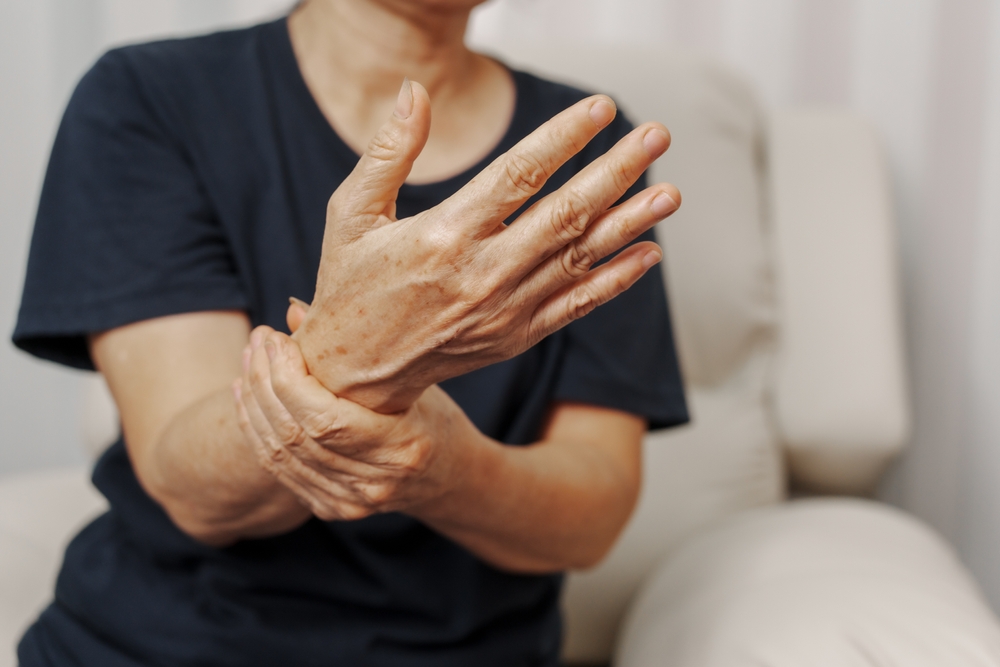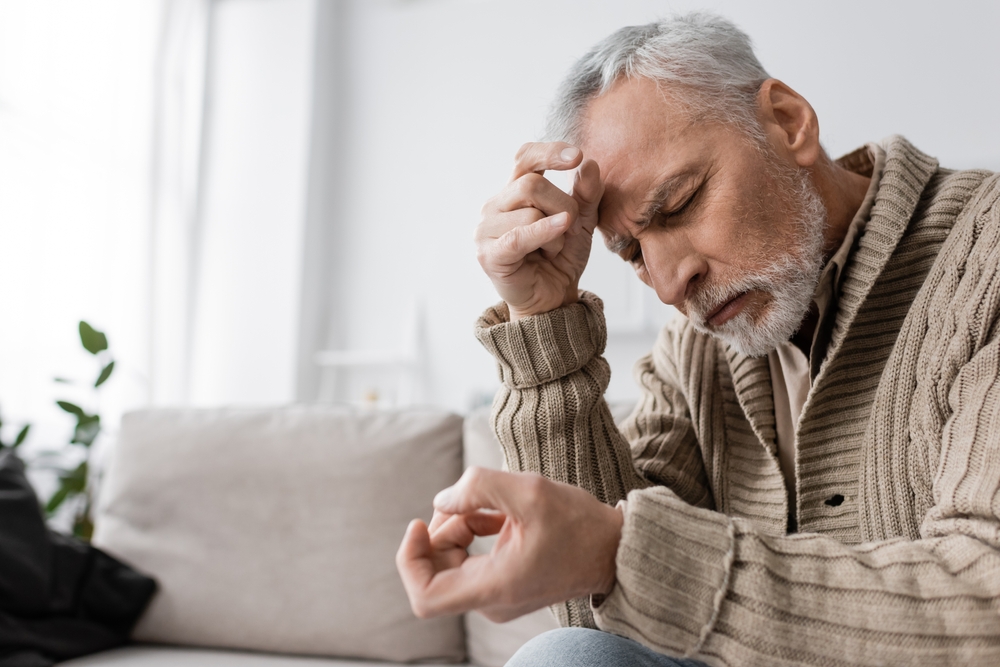Early Signs and Symptoms of Parkinson’s Disease
Category:

When you think of Parkinson’s Disease, you probably think of some of the celebrities and sports stars who suffer from the disease, like Michael J Fox, Muhammad Ali, or Ozzy Osbourne, and one of the more visible symptoms of the disease is known as Parkinson’s shakes.
According to the Mayo Clinic, Parkinson’s disease is a movement disorder of the nervous system that worsens over time. It affects nearly 1 million people in the United States.
Download Our FREE Guide to Alzheimer’s
The beginning signs of Parkinson’s disease are often barely noticeable and sometimes include non-movement-related symptoms. They can include constipation, loss of smell, or sleep disorders. The more noticeable symptoms are the motor signs. Some of the first symptoms of Parkinson’s are:
- Minor tremors in the hands at rest, often called a pill rolling tremor. A pill rolling tremor looks like rubbing the fingers together, especially the thumb and pointer finger, as though rolling something between the fingers.
- Changes in handwriting, for example, the handwriting becomes smaller and more cramped.
- Changes in gait, such as one leg dragging behind the other. Some patients describe a feeling of their foot being stuck to the floor.
- Difficulty with balance
- Trouble sleeping, especially with extreme tossing and turning, which makes your partner want to find somewhere else to sleep
- Loss of smell, particularly noticeable when around something with a strong smell, like garlic or pickles
- Muscles become stiff and slow to respond. The arms may not swing naturally when walking.
- Speaking in a low voice that is difficult for others to hear.
- Parkinson’s and dizziness can be connected. Noticeably different from getting dizzy simply from standing up too fast, this dizziness will happen regularly without any explanation.
- Stooped posture is often associated with Parkinson’s disease, particularly a slouch or lean when standing.
Many of these signs and symptoms can also be explained by other conditions and diseases. Some medications could cause tremors or dizziness, for example. So how do you know if you have Parkinson’s Disease? Unfortunately, Parkinson’s is difficult to diagnose until it reaches later stages, like the stage when the Parkinson’s tremor becomes more apparent. But by working with a physical or occupational therapist and engaging in an exercise program, further symptoms can be delayed.
At what Age Does Parkinson’s Disease Start?
Parkinson’s disease generally starts around age 50 or older, and the average age of onset is around 70. Parkinson’s that occurs before age 50 is called early-onset Parkinson’s, which is very rare. Men are more likely than women to develop Parkinson’s. Some research suggests a possible cause of Parkinson’s could be genetic, but it is still highly unlikely for Parkinson’s to be inherited. Your likelihood of developing Parkinson’s if one of your parents or grandparents had the disease is a very low 2%, compared to a likelihood of 1% if you do not have a relative who has the disease.
Though there is still so much to be learned about Parkinson’s disease, new scientific discoveries are being made every day, including those for treatment. Patients with Parkinson’s are still able to live relatively normal, fulfilling lives.
To learn about our home care services, contact our caregiving team today at 1-800-GRISWOLD or find a Caregiver near you.
Subscribe
Date: 2025-08-07
Category:


